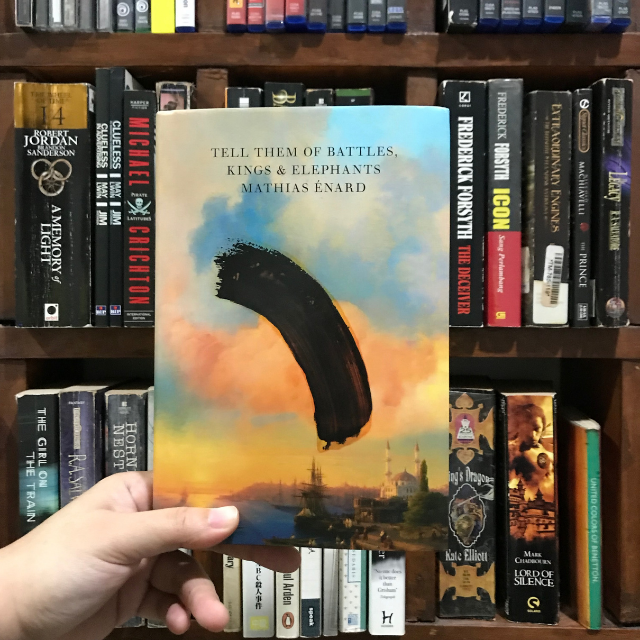A Book Written By Mathias Énard
I went to the bookstore again after what seems like forever, and I bought this book solely just because of the cover. That one random stroke in the middle of a picturesque painting is captivating for me. I never heard about this book before, but then Tell Them of Battles, Kings & Elephants surprised me.
It starts with a wonderful prose “Night does not communicate with the day. It burns up in it. Night is carried to the stake at dawn”. These beautiful poems and proses can be found throughout the chapters.
Tell Them of Battles, Kings & Elephants is a historical fiction about Michelangelo’s time in Constantinople back in 1506. The Sultan of Constantinople invited Michelangelo, to design a bridge over the Golden Horn. Between Europe and Asia. Lured by fortune and fame, since Leonardo da Vinci’s design has been rejected, Michelangelo went to Constantinople and abandons his current project with the Pope. In this new city, he encountered a poet named Mesihi of Prishtina. The bond between them grew unexpectedly.
It is interesting to read about the blooming friendship and love between Michelangelo and Mesihi. Another significant character is the stunning androgynous singer. How Michelangelo is enthralled by them. Some of the chapters in this book were written from the singer’s point of view, and they are refreshing to read.
Want to read this book? Click here to buy on Amazon!
Beautifully Written
In one chapter, the singer told a story of a Sultan and his Andalusian Vizier to Michelangelo. An amusing short story inside a story. It ends with a beautiful poem:
The shadow of pleasure is always above me;
This cloud of absence weeps the wine that intoxicates me.
For me, your weapons strike the sweets blows of love.
I give you this kingdom, so that you cannot lose it.
The author collected evidence and documentation from the Ottoman archives, including Michelangelo’s sketch of a bridge. This book was constructed from real historical fragments of that era. In reality, Michelangelo was never known to have traveled to Constantinople, but how I wish he did.
There are several moments that make me forget I am reading fiction.It feels like reading a historical journal. The short structures of each chapter were beautifully written in this book. Not to mention, the vocabulary and cultural descriptions are also fascinating. In the end, kudos to Mathias Énard and Charlotte Mandell for giving us this wonderful translation.
Rating 5 out of 5 stars
Author: Mia
A writer and researcher who also a tech-addict and internet-junkie. Loves quirky stuff.
The Haptic Room is supported by our readers. Our site may contain links to affiliate websites, and if you make a purchase through these links, we receive a commission to support our site.

